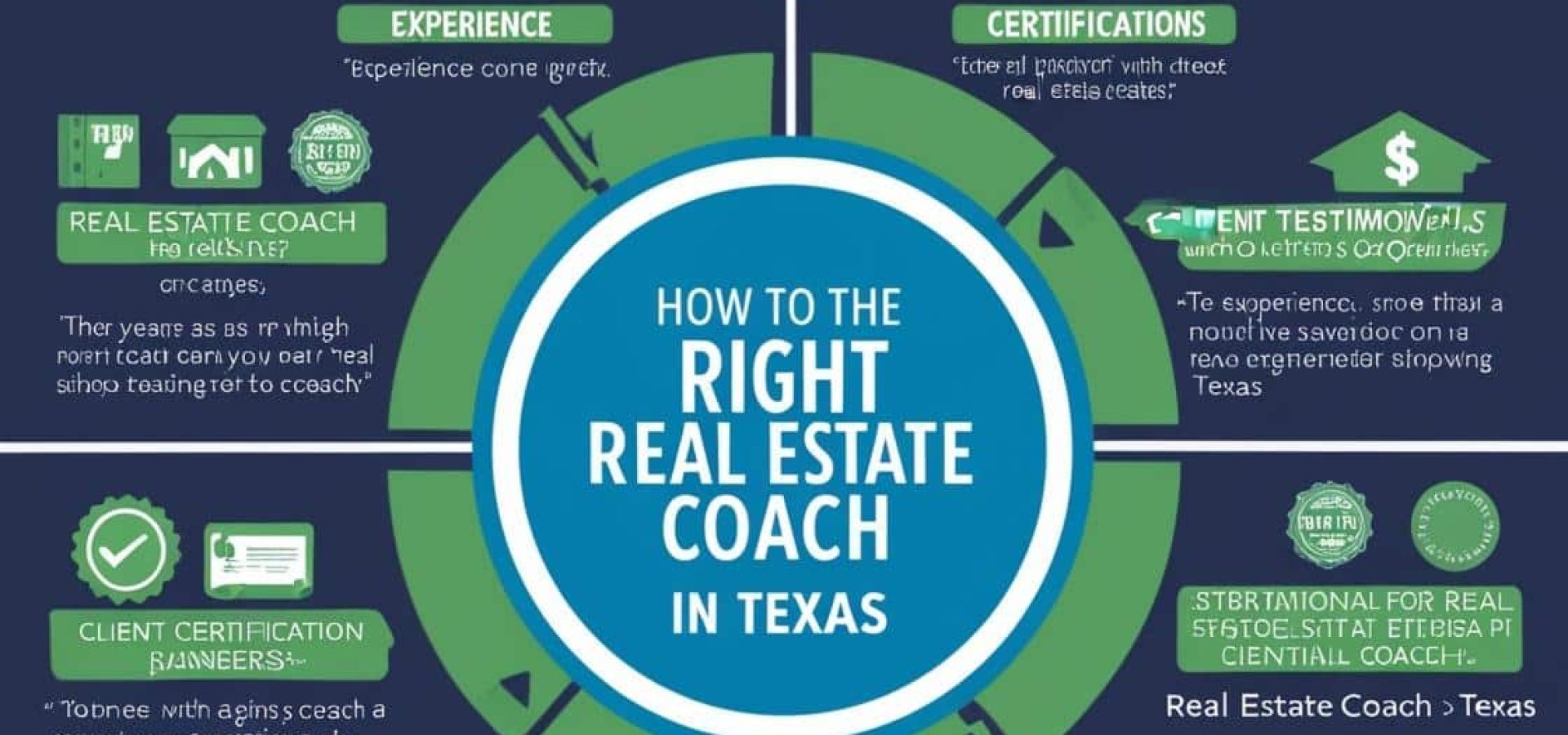
In Texas real estate, success isn’t just about who you know—it’s also about who guides you. With the market expanding in cities like Austin, Dallas, Houston, and San Antonio, more agents than ever are turning to real estate coaches for accountability, strategy, and support. But with so many options out there, a common question arises:
“How do I choose the right real estate coach for me?”
The truth is, not all coaches are created equal—and the right coach for someone else may not be the right fit for you. Here’s a step-by-step guide to help you make a smart, confident decision.
Before you can choose the right coach, you need clarity on where you are and where you’re headed. Ask yourself:
Are you brand new and need help starting your business?
Are you licensed but struggling to generate leads?
Are you ready to build a team or scale your business?
Are you transitioning into a niche like luxury, commercial, or investment properties?
Different coaches specialize in different stages—some work best with new agents, while others focus on scaling seven-figure operations. Know what you need.
Texas has one of the most unique and diverse real estate markets in the country. A coach who understands Texas law, culture, local MLS systems, and market trends will offer more relevant guidance than someone working from a national, one-size-fits-all script.
Look for coaches who have:
Worked in Texas as an agent or broker
Experience in your specific city or metro area
Success stories from other Texas agents
Bonus: A coach who understands state-specific marketing and compliance requirements will save you from potential missteps.
Real estate coaching can be delivered in several ways. Ask yourself which style works best for your learning and motivation style:
One-on-One Coaching – Personalized, high-accountability, usually higher cost
Group Coaching – Community learning, lower cost, often with less individual focus
Online Courses + Calls – Flexible and scalable, but requires self-motivation
Some coaches are tough-love accountability partners, while others are nurturing and supportive. Watch their content, attend free webinars, or book a discovery call to get a feel for their energy.
Motivation is important—but it’s not enough.
The best coaches offer proven systems and frameworks, such as:
Lead generation strategies (cold calling, social media, referrals, etc.)
Time-blocking and productivity models
Scripts for buyers, sellers, and follow-ups
Business planning and goal-setting tools
Ask what tangible tools and processes they provide. You should leave each session with a clear action plan—not just inspiration.
Great coaches have a track record of success. Look for:
Video or written testimonials from agents in your stage or market
Case studies showing measurable results (e.g., “doubled GCI in 6 months”)
Social proof on LinkedIn, YouTube, or Facebook
Don’t be afraid to reach out and ask past clients about their experiences.
Coaching is an investment—both in money and time. Prices vary widely:
Group programs: $100–$500/month
One-on-one coaching: $500–$2,000/month
Masterminds or elite programs: $3,000–$10,000+
The right coach won’t be the cheapest—but they’ll deliver a return on your investment through increased income, clarity, and confidence.
Ask: “If I follow this plan, will I earn at least 2–3X what I’m investing?”
Finally, trust your gut. Coaching is a relationship. You need to feel comfortable being honest, challenged, and held accountable. During an intro call, ask yourself:
Do they listen to me, or just pitch their program?
Do I feel energized and motivated after speaking with them?
Can I see myself growing with this person in my corner?
In a market as vast and fast-moving as Texas, a great coach can be your secret weapon. They don’t just help you survive the industry—they help you thrive.
Choosing the right coach is less about finding the “most famous” name and more about finding someone who aligns with your values, vision, and goals.
When you invest in the right coach, you’re investing in the version of you that’s already successful—you’re just catching up.
Subscribe for exclusive property listings and market updates.
Ready to take your first step toward a successful real estate career?
Join the Modern Agent Institute community today and get 10% OFF your first course—just for subscribing to our email list!
Stay ahead with insider updates, career tips, and exclusive offers designed to help you launch, grow, and lead in Texas real estate.